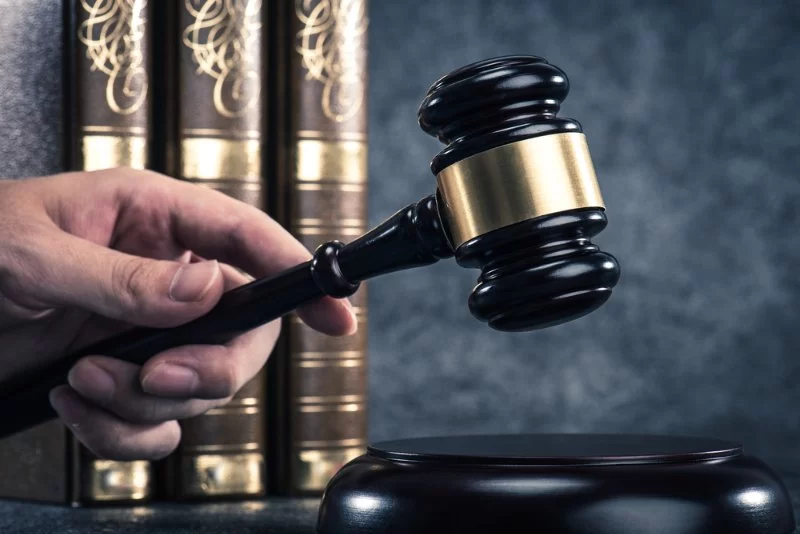- recognizing‑errors‑that‑justify‑an‑appeal
- timing‑and‑deadlines‑for‑appeal
- the‑role‑of‑a‑lawyer‑in‑an‑appeal
- evaluating‑strengths‑and‑risks‑based‑on‑case‑facts
- real‑case‑examples‑of‑successful‑appeals
- steps‑to‑start‑an‑appeal‑proceeding‑with‑help
- final‑thoughts‑and‑next‑action
1. Recognizing Errors That Justify an Appeal
Knowing when to appeal a court decision with a lawyer’s help begins with identifying key legal errors in the trial. These might include misapplication of law, improper admission or exclusion of evidence, or a judge giving incorrect instructions to a jury. A lawyer examines trial transcripts and rulings for these mistakes. For instance, if crucial evidence was wrongly excluded, or the judge applied a legal standard incorrectly, those become grounds for an appeal. Recognizing these errors requires comparing trial proceedings to applicable statutes and precedent cases. This assessment helps determine whether an appeal is justified and whether legal help will significantly strengthen the case.
2. Timing and Deadlines for Appeal
Federal and state appeals follow rigid deadlines, often within 30 days of the final judgment. Missing this window typically means losing the right to appeal altogether. When to appeal a court decision with a lawyer’s help often depends on these strict timelines. An experienced lawyer ensures paperwork is filed promptly, correct formatting is followed, and necessary notices are served. In some scenarios—such as habeas corpus or emergency relief—accelerated deadlines apply. Legal guidance is critical to track all timelines and avoid procedural pitfalls that could invalidate a perfectly valid appeal on procedural grounds.
3. The Role of a Lawyer in an Appeal
A lawyer’s help in appellate work is essential for crafting persuasive legal arguments and navigating procedural requirements. Unlike trial lawyers, appellate attorneys write detailed briefs, emphasizing legal reasoning in a clear, compelling structure. They analyze appellate court rules, cite binding precedents, and outline why the trial court’s decision should be reversed or remanded. Lawyers also prepare for oral arguments, anticipate judges’ concerns, and respond to opposing briefs. When considering when to appeal a court decision with a lawyer’s help, understanding this sophisticated advocacy highlights the value legal counsel brings.
4. Evaluating Strengths and Risks Based on Case Facts
Deciding when to appeal a court decision with a lawyer’s help also involves weighing potential benefits against costs and risks. Appeals can take many months or even years, involve high legal fees, and uncertain outcomes. A lawyer helps assess whether the identified error likely changed the trial’s result or if appellate courts will view it as harmless. They also review odds based on prior appellate decisions in the jurisdiction. If appeal prospects appear low or costs high, mediation or other alternatives may be better. Realistic evaluation ensures clients pursue only appeals with meaningful chances.
5. Real Case Examples of Successful Appeals
Examining real-world scenarios brings clarity. In one criminal appeal, an attorney showed that the trial judge had improperly excluded expert testimony, which affected sentencing—leading to a reduced sentence on appeal. In a civil case, a lawyer successfully argued that jury instructions misstated the burden of proof, prompting reversal. These stories illustrate when to appeal a court decision with a lawyer’s help: when procedural or legal errors significantly impacted outcomes. Personalizing the implications of legal missteps and seeing how lawyers corrected them builds trust and confidence in the process.
6. Steps to Start an Appeal Proceeding With Help
When you decide when to appeal a court decision with a lawyer’s help, the process generally follows several steps. First, consult a qualified appellate attorney who reviews trial records and advises on appeal viability. Then, file a notice of appeal according to local rules. The lawyer prepares an appellate brief, submitting legal arguments supported by case law. The opposing party files a response brief, and you may file a reply. A court hearing is scheduled if oral argument is granted. Throughout, a lawyer helps keep track of deadlines, formatting rules, and strategic decisions such as whether to seek expedited review or partial remand.
7. Final Thoughts and Next Action
Deciding when to appeal a court decision with a lawyer’s help is a strategic choice rooted in legal error, timing, and practical risk‑reward analysis. With proper guidance, the process can provide a second chance for justice. If you’re considering an appeal, seeking advice from Fred Miller Lawyer is a smart next step. They can evaluate trial documentation, clarify appeal grounds, and help you determine if proceeding makes sense. With legal support, you’ll better navigate complex procedures, present strong arguments, and pursue the best possible outcome.


 alex borell
alex borell craig hansen lawyer
craig hansen lawyer eaker perez law
eaker perez law la century law reviews
la century law reviews mcintosh law firm
mcintosh law firm maggiano's hackensack nj 07601
maggiano's hackensack nj 07601